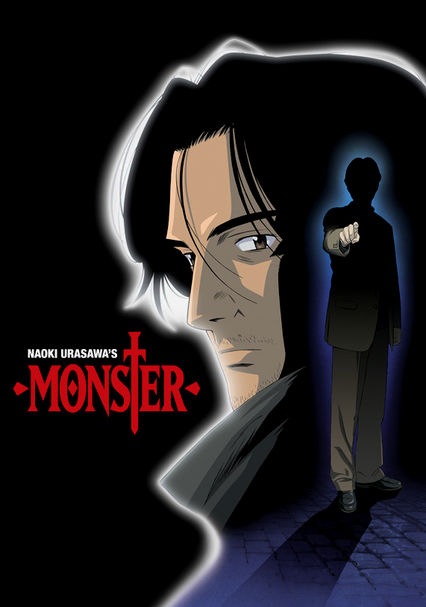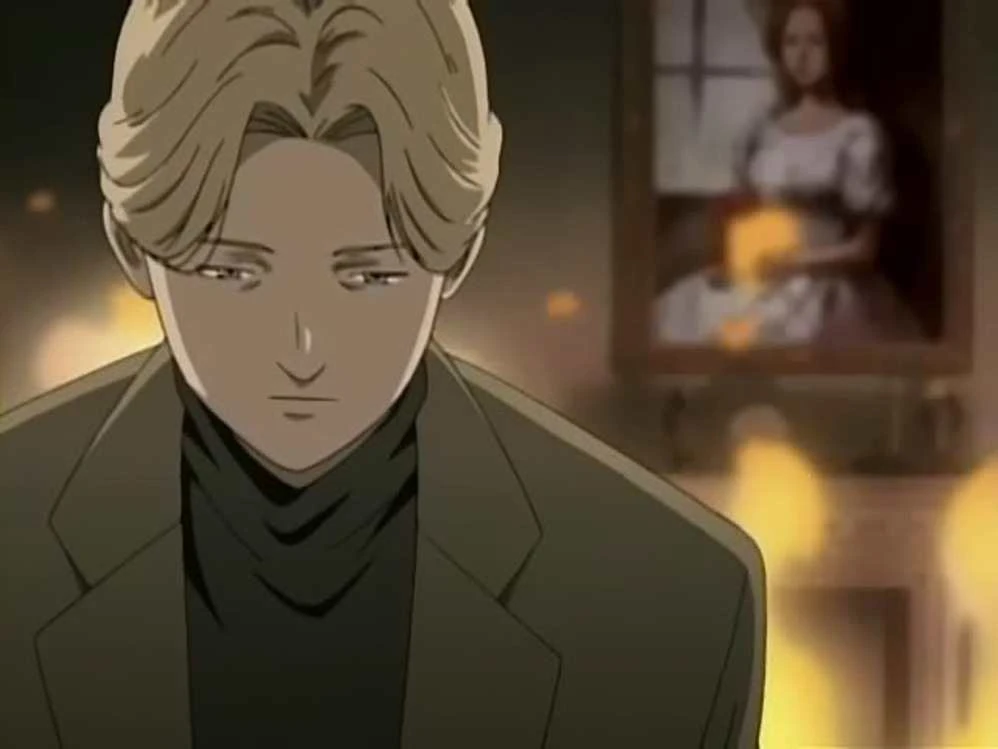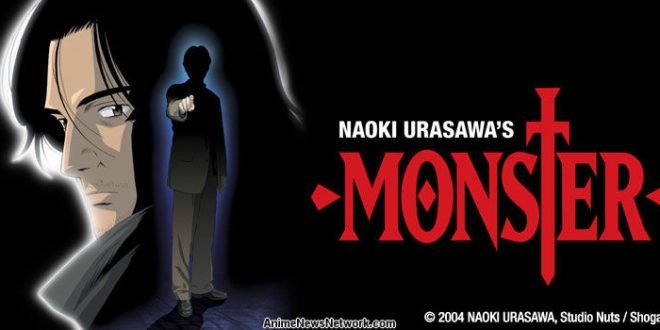It’s week 2 of PopHorror’s month long horror anime deep dive. This means it’s time for something different. In last week’s article on When They Cry (read that one here), we discussed this quintessential horror anime, which is full of hyperbolized emotions, wonky pacing, reliance on Japanese folklore, and environmental unease. There’s a charm to that kind of aesthetic and pacing. There’s something delightful about the inaccessible feeling of watching something so separate with traditional Western storytelling.

This week’s selection, Naoki Urasawa’s straight-laced, perfectly paced thriller, Monster, is the opposite. It presents a slick, gripping narrative that feels like the best parts of Takashi Miike’s films and Ryu Murakami’s novels. It also has a rich, under-the-skin style that invokes the best parts of Dario Argento’s Animal Trilogy (Bird With the Crystal Plumage, Cat O’ Nine Tails, and Four Flies on Grey Velvet).
WHAT IS IT?
Based on the manga of the same name, Monster follows a brilliant Japanese surgeon named Dr. Kenzou Tenma who’s living in Germany. After saving a prominent opera singer, he is accosted by a woman in the waiting room. She tearfully confesses that she’s the wife of another patient that died while waiting for Tenma. The doctor then discovers that the hospital prioritized the singer to bolster its reputation. Later, Tenma is forced to make a choice between a dying child and the mayor of his city. To redeem himself, he saves the child. This results in the loss of his career and his relationship with his fiancee, the hospital director’s daughter.

After a leap ten years forward in time, there’s a series of sadistic murders throughout Germany. Dr. Tenma falls into a web of regret, guilt, and philosophical torment when he discovers the killer’s identity… the now-grown boy that he saved instead of the mayor.

WHAT DOES IT FEEL LIKE?
This show feels like a Swiss watch thriller from top to bottom in line with Alfred Hitchcock’s I Confess. Tenma struggles with the morality weight question. Despite his staunch beliefs as a doctor, is all life is worth preserving? While the plot and aesthetics dress Monster up as a thriller, the horror comes from the series’ antagonist, Johan Liebert, the man Tenma saved as a boy. Liebert walks amongst the set pieces of Monster like a noxious wind, poisoning every scene with the feeling that no one is safe, no one can survive unless he wills it.

Liebert is the titular monster of the show, with the cold, calculating ruthlessness of Hannibal Lecter or Patrick Bateman. To watch this series is to be afraid of Johan Liebert. He is the grinning, spectral embodiment of the cost of everyone’s good intentions.
Setting the show in Germany was a master stroke. After all, Germany is a country in constant struggle with the monstrosity of its own past convictions. The series boldly draws the parallel between its blonde-haired, blue-eyed monster and the Aryan monster of Germany’s yesteryear.

Monster is, as this review hopefully suggests, a rich, layered, line of dominoes with incredible pacing and voice-performances (in both the original Japanese and the English dub).
It’s also definitive proof that anime is more than Kamehameha Waves and Pikachus. In anime, there can be found compelling, thoughtful, adult stories with more than explosions to get your adrenaline pumping.
HOW “ANIME” IS IT?
It’s animated. It’s Japanese. It invokes larger-than-life emotions, but it has none of the tropes and signposts of the form that something like When They Cry has. There are no interdimensional demons, culture festivals or Japanese folklore to wrinkle the plot. It’s a straightforward cat-and-mouse game between a cold-blooded killer and a hapless doctor caught in the tangles of his unfortunate fate.
If you’re nervous that all anime is like Sailor Moon and full of big eyed magical girls and talking cats, Monster can convince you otherwise.
Read Week 1 here
Read Week 3 here
Read Week 4 here
 PopHorror Let's Get Scared
PopHorror Let's Get Scared




